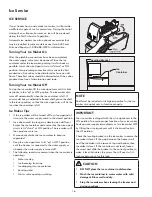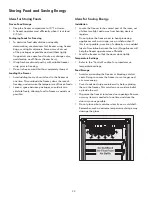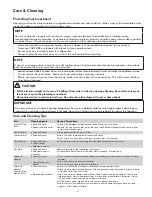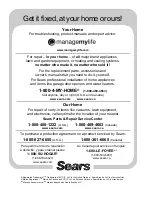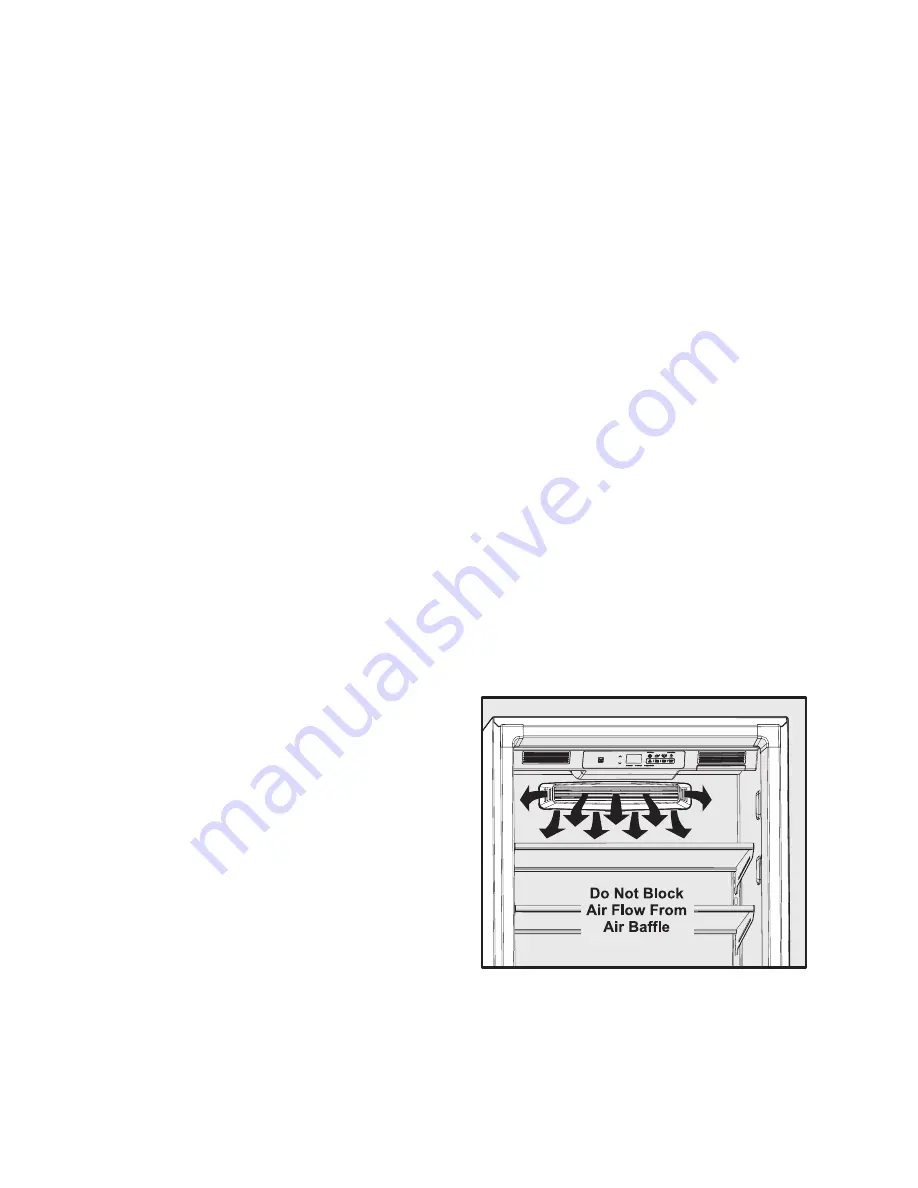
20
Storing Food and Saving Energy
Ideas for Storing Foods
Frozen Food Storage
• Keep the freezer compartment at 0° F or lower.
• A freezer operates most efficiently when it is at least
2/3 full.
Packaging Foods for Freezing
• To minimize food dehydration and quality
deterioration, use aluminum foil, freezer wrap, freezer
bags, or airtight containers. Force as much air out
of the packages as possible and seal them tightly.
Trapped air can cause food to dry out, change color,
and develop an off-flavor (freezer burn).
• Wrap fresh meats and poultry with suitable freezer
wrap prior to freezing.
• Do not refreeze meat that has completely thawed.
Loading the Freezer
• Avoid adding too much warm food to the freezer at
one time. This overloads the freezer, slows the rate of
freezing, and can raise the temperature of frozen foods.
• Leave a space between packages, so cold air can
circulate freely, allowing food to freeze as quickly as
possible.
Ideas for Saving Energy
Installation
• Locate the freezer in the coolest part of the room, out
of direct sunlight, and away from heating ducts or
registers.
• Do not place the freezer next to heat-producing
appliances such as a range, oven, or dishwasher. If
this is not possible, a section of cabinetry or an added
layer of insulation between the two (2) appliances will
help the freezer operate more efficiently.
• Level the freezer so that the doors close tightly.
Temperature Settings
• Refer to the “Controls” section for procedures on
temperature settings.
Food Storage
• Avoid overcrowding the freezer or blocking cold air
vents. Doing so causes the freezer to run longer and
use more energy.
• Cover foods and wipe containers dry before placing
them in the freezer. This cuts down on moisture build-
up inside the unit.
• Organize the freezer to reduce door openings. Remove
as many items as needed at one time and close the
door as soon as possible.
• Do not place a hot container directly on a cold shelf.
Remember, such an extreme temperature change may
damage the glass.













